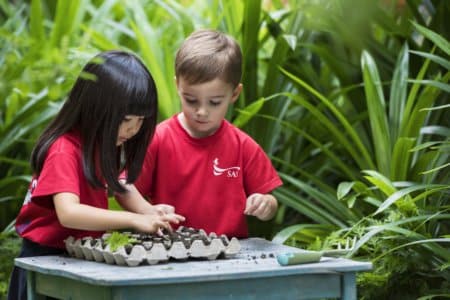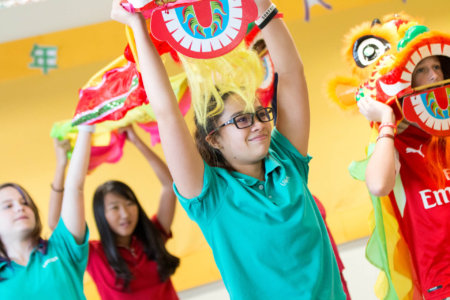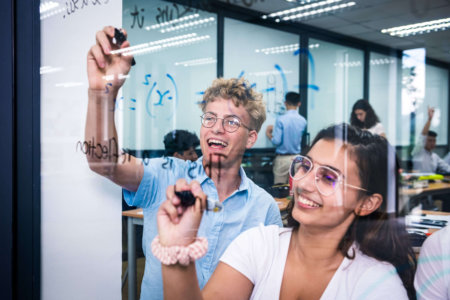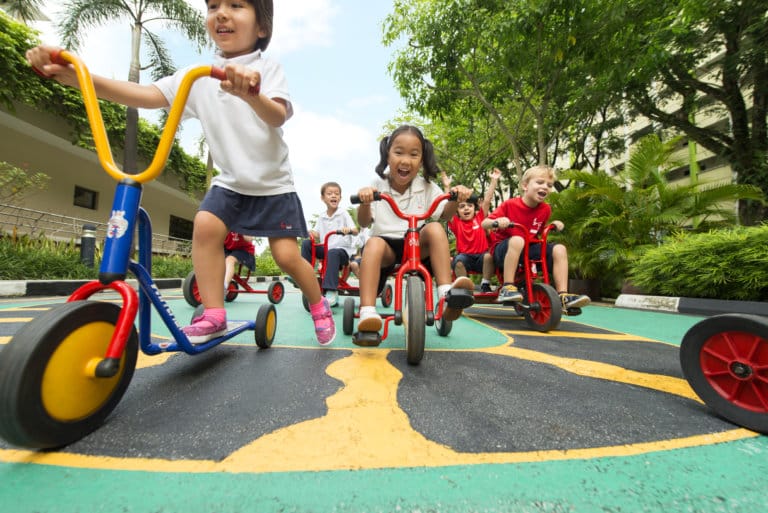
To prepare children for success not just in school but in university and beyond, look no further than international schools.
The best ones are filled with the opportunities and experiences that brace and bolster them for the vagaries of life and work. They understand a child has to develop as a whole and their progress has to be measured by more than just exams. Literacy is not just how well they know their ABCs and 123s, but how literate they are in science, ICT, finance, civics and culture.
As such, these schools offer a versatile curriculum and sometimes, various curricula — amidst safe and nurturing environments — to discover and explore their passions and interests.
With excellent academics, these schools create a good foundation to enact initiatives that help evolve children into responsible global citizens. It starts with arming them with the key soft skills described by the World Economic Forum to future-proof against automation and artificial intelligence, such as critical thinking, good communication and creativity.
Find the right international school for your child and their future is set. Here are three international schools in Asia to consider:
Singapore American School
Singapore American School (SAS) may have been established even before the country gained independence, but it’s more than well-equipped in preparing students for the 21st century.
Fusing exemplary American educational experience with an international perspective, SAS puts children on a path to success in school, university and beyond. It’s no small feat but what began with just 105 students in colonial-style bungalows experimenting in a makeshift science lab in the garage and listening to assemblies in the dining room is now a 36-acre campus that’s home to over 4,000 students and state-of-the-art facilities. And that’s just one facet of what the school has and can achieve.
Here, students do more than just get good grades. They learn to unlock their full potential academically, individually and socially. With a focus on in-depth and personalised learning, students are nurtured to think critically, solve real-world problems and collaborate with peers from diverse backgrounds. This is a foundation that’s paved the way for the school to place among the 97th percentile or higher in all MAP testing subjects worldwide, with its students soaring to the world’s top universities and careers.
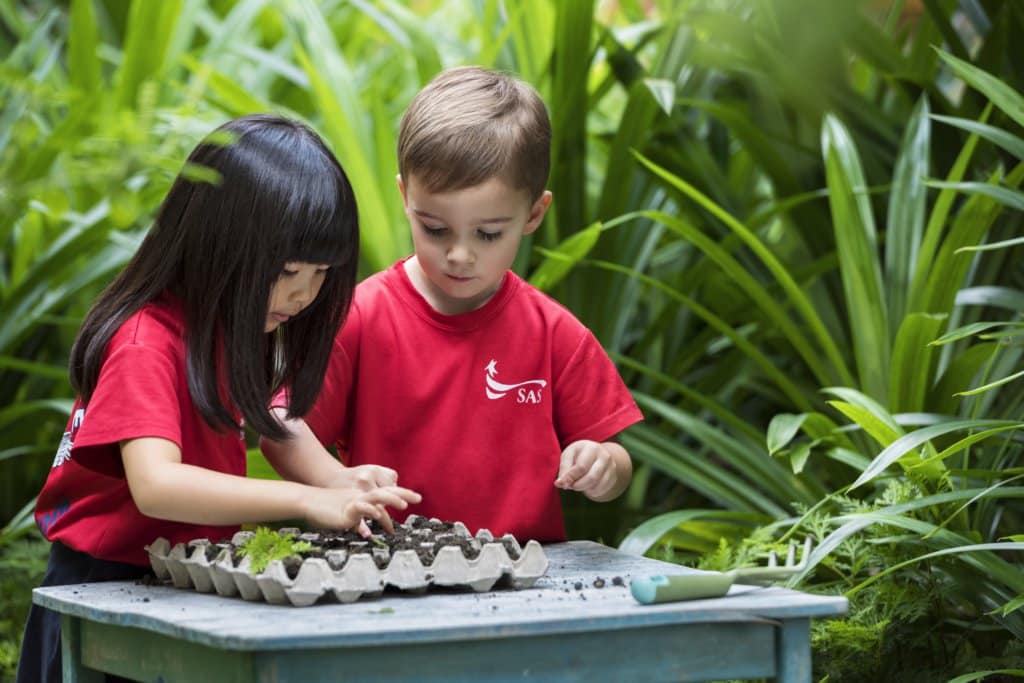
Singapore American School focuses on growth, development, and cultural awareness.
Source: Singapore American School
Hands-on and experiential learning activities such as field trips and community service are held to encourage growth outside of the classroom from as early as preschool. Students can also choose from over 300 clubs, service organisations, and after-school activities offered from K-12, including sports, music, dance and social and environmental outreach.
By adopting the Collaborative for Academic Social and Emotional Learning (CASEL) framework, SAS ensures students master five core competencies: self-management, self-awareness, social awareness, relationships and responsible decision-making. The goal is more profound here — that is, to give children the know-how and inspiration to navigate the world more effectively.
If you are looking for a school to help your child become a responsible, enlightened and reflective global citizen, visit the school’s website.
Hong Kong International School
“Educational excellence with a difference.” That’s the approach Hong Kong International School (HKIS) strives to take in preparing students for the challenges of university and beyond. As a kindergarten through grade 12 international school with an American curriculum, HKIS is dedicated to fostering an inclusive and accepting student community. Above all, it pushes its students to achieve their intellectual potential — and, given that HKIS graduates attend the top universities around the world, it has certainly succeeded on that front.
In its high school, students get the unique opportunity to take charge of their own learning. A choice-based curriculum allows students to apply their previous years of knowledge both within courses they select as well as through internships and outside experiences. It’s a proven method that develops a student’s understanding of how their classroom learning ties into the world around them — and subsequently moulds them into more versatile, adaptable citizens of the world.

Hong Kong International School puts students in charge of how they learn.
Source: Hong Kong International School
An example of a unique real-world course offered at the school , is an introduction to chemical engineering through the lens of coffee. Here, high schoolers are taught to deconstruct the process of creating coffee — from its inception all the way to how it is processed. They were then encouraged to draw on their own creativity in designing their own “recipe,” applying the chemical processes of fermentation, roasting, sugar, and temperatures.
Such distinctive forms of learning are common at HKIS, where the boundaries of a traditional education are challenged everyday. This is only made possible through the school’s host of exceptional faculty members, all of whom are committed to cultivating an inspired and enriching learning environment. All the while, students are supported by state-of-the-art facilities across two world-class campuses that make the most of Hong Kong’s beautiful natural environment.
Visit the Hong Kong International School’s admissions page or enjoy a virtual tour of their two campuses. Follow Hong Kong International School on Facebook and Instagram.
Alice Smith School Malaysia
Alice Smith School is the first British international school in Malaysia and is the only “not-for-profit” British international school in the nation’s fast-rising capital. Growing from strength to strength since Alice Fairfield-Smith, a biology graduate from Harvard University and an experienced teacher, first set up the school in her home in Jalan Eaton, today the school is synonymous with the phrase “outstanding international education.”
Step into any class, and you’ll find interaction and collaboration between the teacher, the students and their peers. In small tutor groups, coaching and reflection exercises take place — sometimes led by expert guests — so students get the most from their education. Enriched, challenging and holistic, it’s a curriculum that nurtures young minds into critical and analytical leaders, ready for university and beyond.
It all kicks off in the Foundation Stage, where students between the ages of three and five follow the English National Curriculum. Teachers guide according to a number of recognised approaches as to how children best learn at this age, including Reggio Emilia, Anna Ephgrave, Maria Montessori and Alistair Bryce-Clegg.
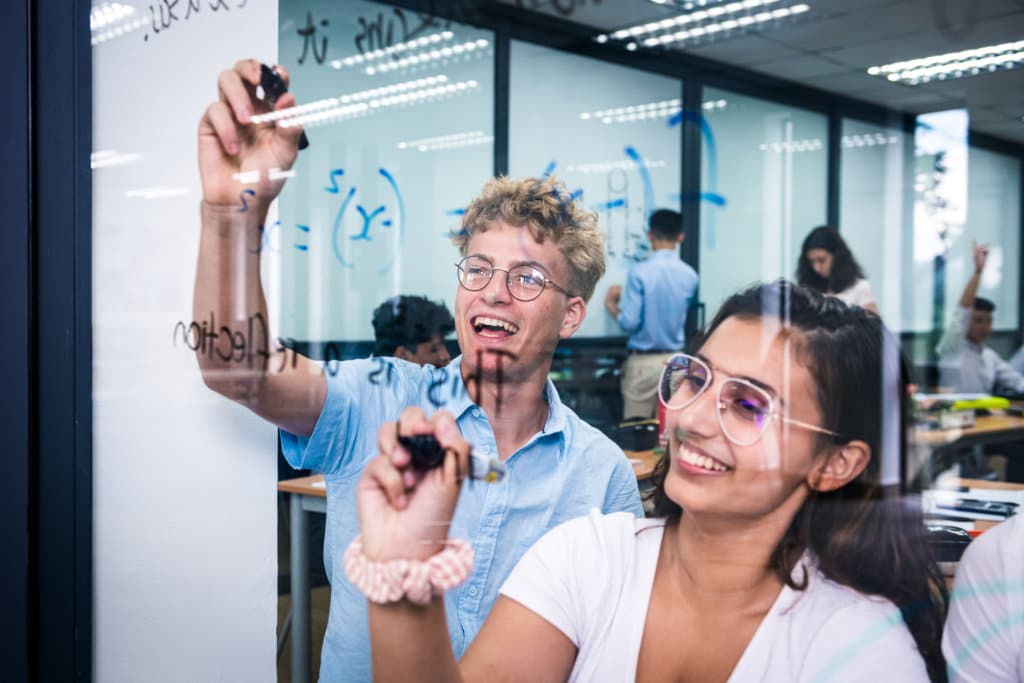
Alice Smith School Malaysia provides students with an outstanding British education in Asia.
Source: Alice Smith School Malaysia
Across Primary, Secondary, and Sixth Form programmes, older students combine their academic achievements with their unique strengths, aspirations and needs. Students take GCSE and A Level, customising their own pathways with enrichment activities, including leadership, service and physical activity.
“What I love most about Alice Smith is the freedom that has been given to me by the teachers, mentors and adults guiding my development from a teenager into an adult,” says student Maisie. Armed with a broad range of knowledge, skills and experience, she and her peers are well on their way to extraordinary outcomes — 95% of Alice Smith students obtain a place at their first-choice world universities, including Oxford, Cambridge and Yale.
A high-quality teaching faculty is a key contributor to their success. These are world-class teachers who have direct experience teaching in British schools all around the world and hold special and professional leadership qualifications like the UK National Professional Qualifications in Middle/Senior Leadership or Headship. To meet them and see Alice Smith’s diverse campus with purposeful-built facilities, click here.
*Some of the institutions featured in this article are commercial partners of Study International








